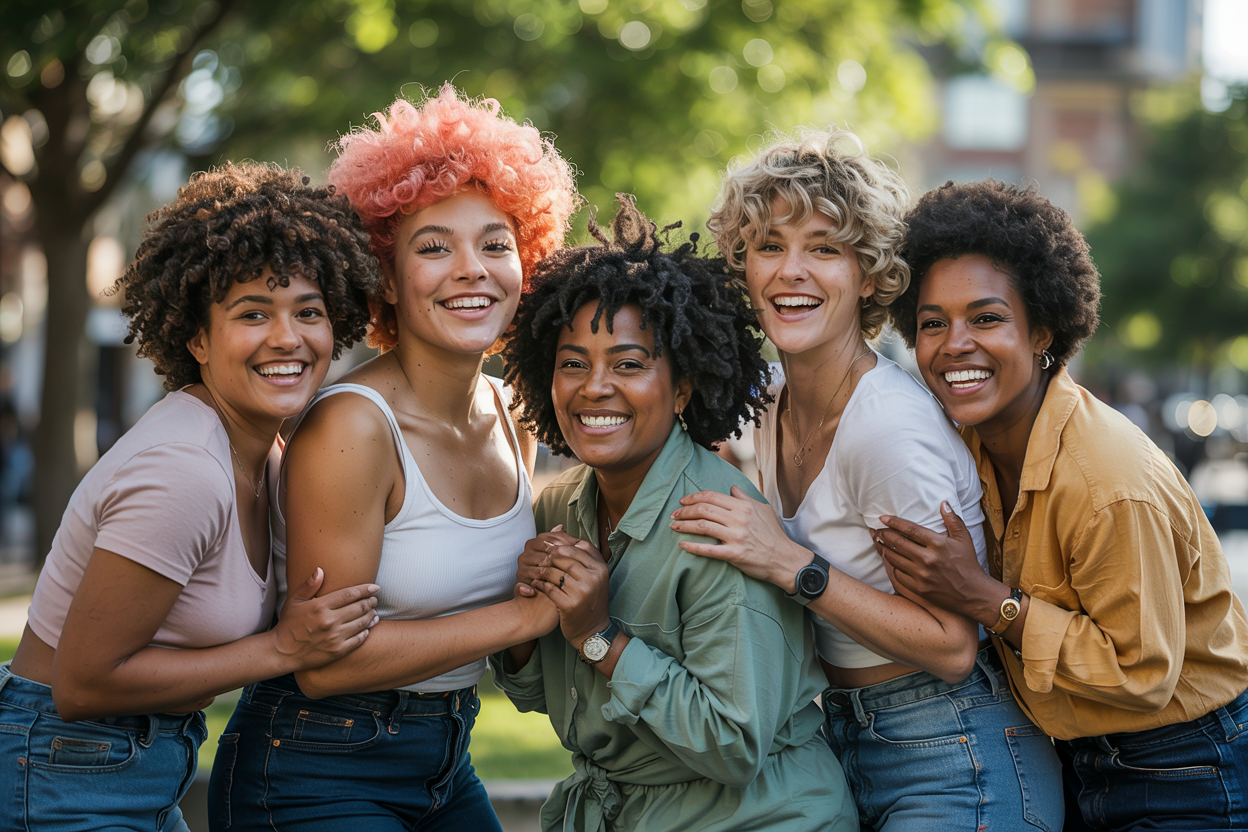For generations, many women of color felt pressured to straighten or alter their natural hair textures to meet societal beauty standards. But in recent years, a cultural shift has sparked a powerful movement—one that’s all about embracing natural hair with confidence and pride.
“I used to relax my hair every six weeks without fail,” says Tasha, a corporate attorney in Metro City. “But the chemicals were damaging, and I felt like I was hiding who I really was. Now, I wear my curls freely, and it’s incredibly freeing.”
The rise of the natural hair movement has been fueled by social media, with influencers and hair enthusiasts sharing tips, tutorials, and stories of self-acceptance. From twist-outs to wash-and-go styles, women are redefining beauty on their own terms.
“I didn’t know my curls could look this good,” says Monique, a college student sporting a halo of defined coils. “It took a lot of trial and error to find the right products, but once I did, I fell in love with my hair.”
The movement has also impacted the haircare industry. Shelves once dominated by relaxers and straightening kits are now filled with curl creams, leave-in conditioners, and styling gels designed specifically for textured hair. Brands like Curls & Coils and Naturally Yours have emerged to cater to the demand. This shift has pushed major beauty brands to diversify their offerings, but some argue that representation is still lacking.
“It’s great to see more options, but I wish bigger brands didn’t just treat natural hair products as a trend,” remarks Shonda, a hair enthusiast and beauty blogger. “It’s about long-term commitment and understanding the needs of our hair.”
Yet, embracing natural hair isn’t always easy. From learning new styling techniques to managing shrinkage and humidity, it can be a journey. “I get frustrated sometimes,” admits Erica, who recently transitioned from heat-styled hair. “But then I remember this is my hair, and it’s beautiful.”
🧡 Heyyy, so I thought I’d share some natural hair tips that have worked for me, I’ll make a detailed video soon with some more tips and my regimen (a thread)😘🧡 pic.twitter.com/pfWVPJuq0f
— Wahu ☆ (@carrie__wahu) September 18, 2020
For some, the challenge is more than just the technicalities of caring for curls. The decision to go natural often comes with navigating perceptions in professional and social settings. “People still think natural hair is unkempt or unprofessional,” shares Aisha, an HR consultant. “I’ve had clients tell me they felt pressured to straighten their hair for interviews. It’s frustrating, but workplace policies are slowly changing.”
Natural hair events and expos have become popular, providing education and support for those navigating their hair journeys. These gatherings, like CurlFest and the Natural Hair Expo, have become spaces for celebration, empowerment, and education. “It’s more than hair—it’s identity and culture,” says Keisha, who runs a local natural hair meetup. “It’s about loving yourself as you are.”
The movement has also highlighted the importance of passing on hair care knowledge to younger generations. “Growing up, my mom didn’t know how to handle my hair. She was always straightening it,” says Tanisha, a mother of two daughters. “I’m teaching my girls to love their curls from day one.”
Hair discrimination, however, remains a reality. The CROWN Act, a law aimed at banning discrimination based on hair texture and protective hairstyles, has gained traction across several U.S. states. Despite this progress, many women say the stigma still exists. “It’s about changing the mindset,” says Tasha. “Legislation helps, but real change comes from embracing our beauty unapologetically.”
The natural hair journey is deeply personal—filled with triumphs, setbacks, and self-discovery. “There were days I wanted to give up,” Erica confesses. “But then I remember, it’s not just hair. It’s a statement. I’m done hiding who I am. This is me.”
The Natural Hair Movement is a powerful force,empowering Black women to love and celebrate their natural beauty. By embracing their unique hair textures and styles, they’re reclaiming their heritage and promoting self-love.#DJSBU #GalaxyUnpacked #GalaxyAI #Loadshedding #mayeni pic.twitter.com/gO7nOtFPxS
— HairpyCrown (@HairpyCrown) January 31, 2025
The natural hair movement is more than a trend—it’s a revolution that celebrates the beauty of textured hair, encourages self-acceptance, and pushes for true inclusivity. As more women continue to embrace their curls, coils, and kinks, the world is witnessing a powerful redefinition of beauty standards—one curl at a time.

